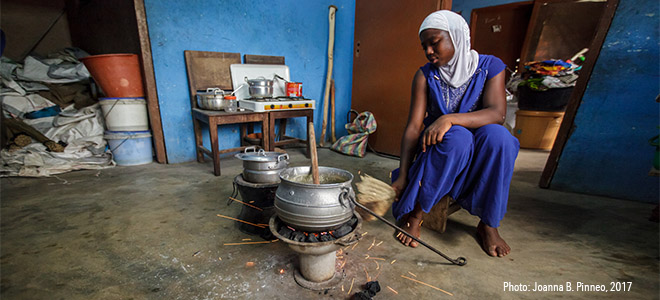
by Wiedinmyer, C., K. Dickinson, R. Piedrahita, E. Kanyomse, E. Coffey, M. Hannigan, R. Alirigia, and A. Oduro
Environmental Research Letters
Volume 12, Number 6 (2017)
Abstract: Key differences between urban and rural populations can influence the adoption and impacts of new cooking technologies and fuels. We examine these differences among urban and rural households that are part of the REACCTING study in Northern Ghana. While urban and rural populations in the study area all use multiple stoves, the types of stoves and fuels differ, with urban participants more likely to use charcoal and LPG while rural households rely primarily on wood. Further, rural and urban households tend to use different stoves/fuels to cook the same dishes—for example, the staple porridge Tuo Zaafi (TZ) is primarily cooked over wood fires in rural areas and charcoal stoves in urban settings. This suggests that fuel availability and ability to purchase fuel may be a stronger predictor of fuel choice than cultural preferences alone. Ambient concentrations of air pollutants also differ in these two types of areas, with urban areas having pollutant hot spots to which residents can be exposed and rural areas having more homogeneous and lower pollutant concentrations. Further, exposures to carbon monoxide and particulate matter differ in magnitude and in timing between urban and rural study participants, suggesting different behaviors and sources of exposures. The results from this analysis highlight important disparities between urban and rural populations of a single region and imply that such a characterization is needed to successfully implement and assess the impacts of household energy interventions. Read more …

